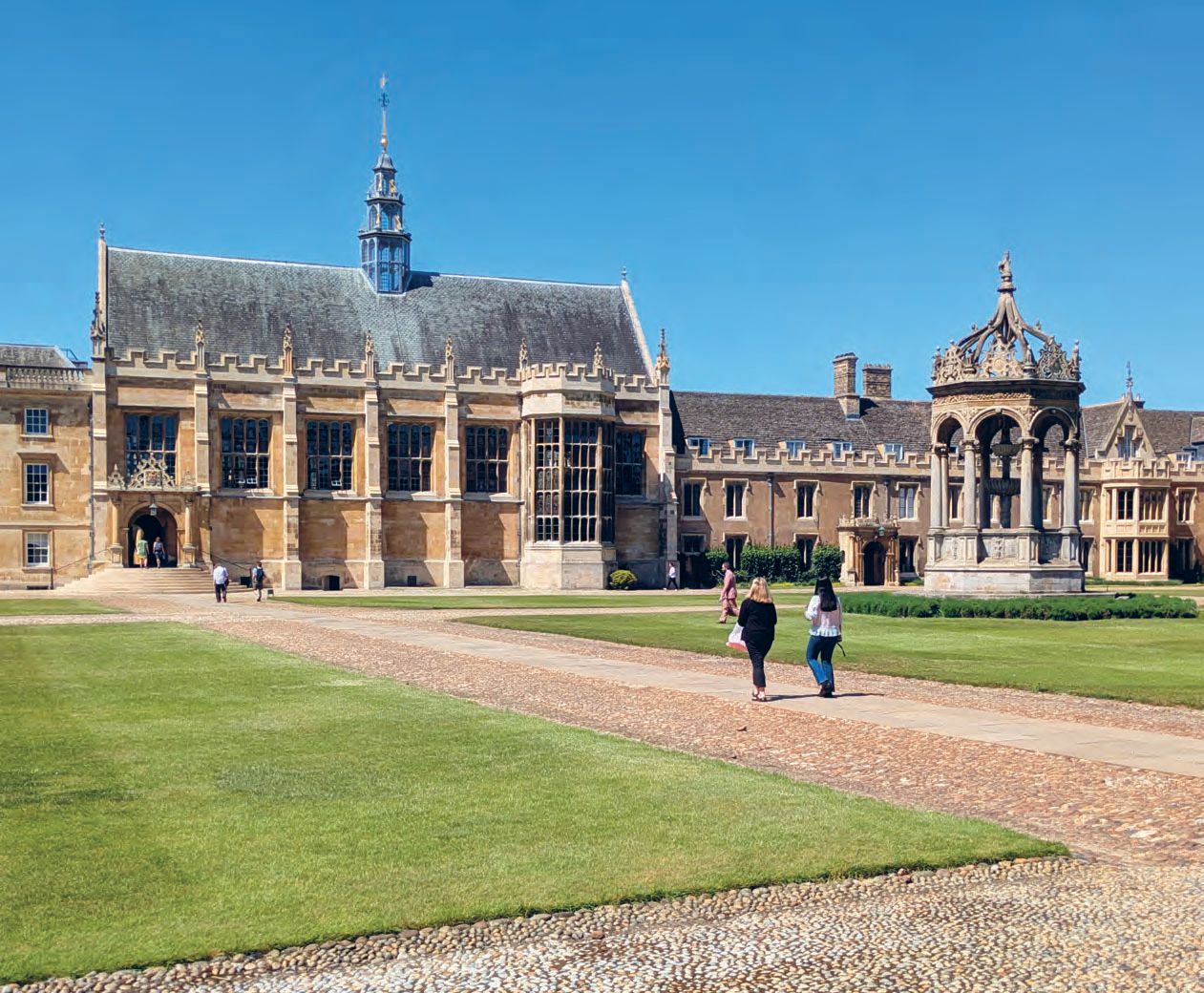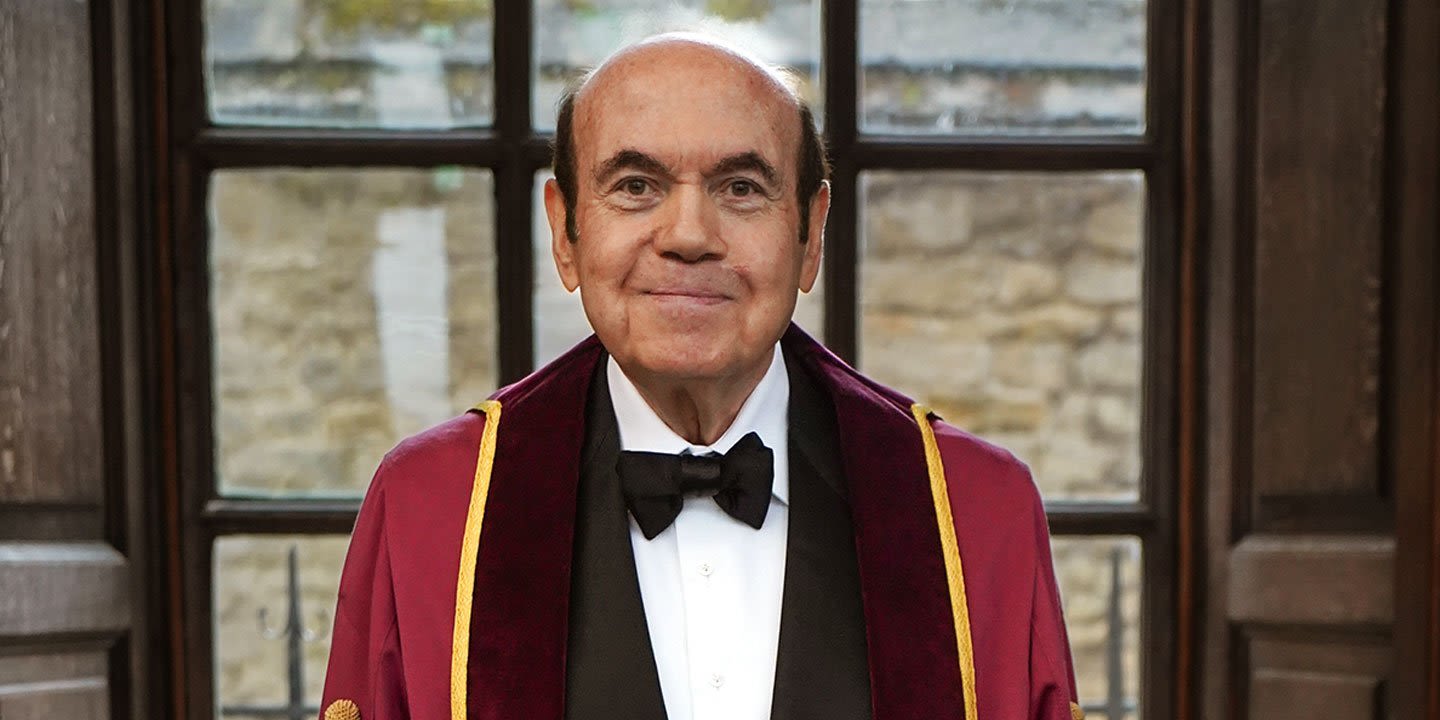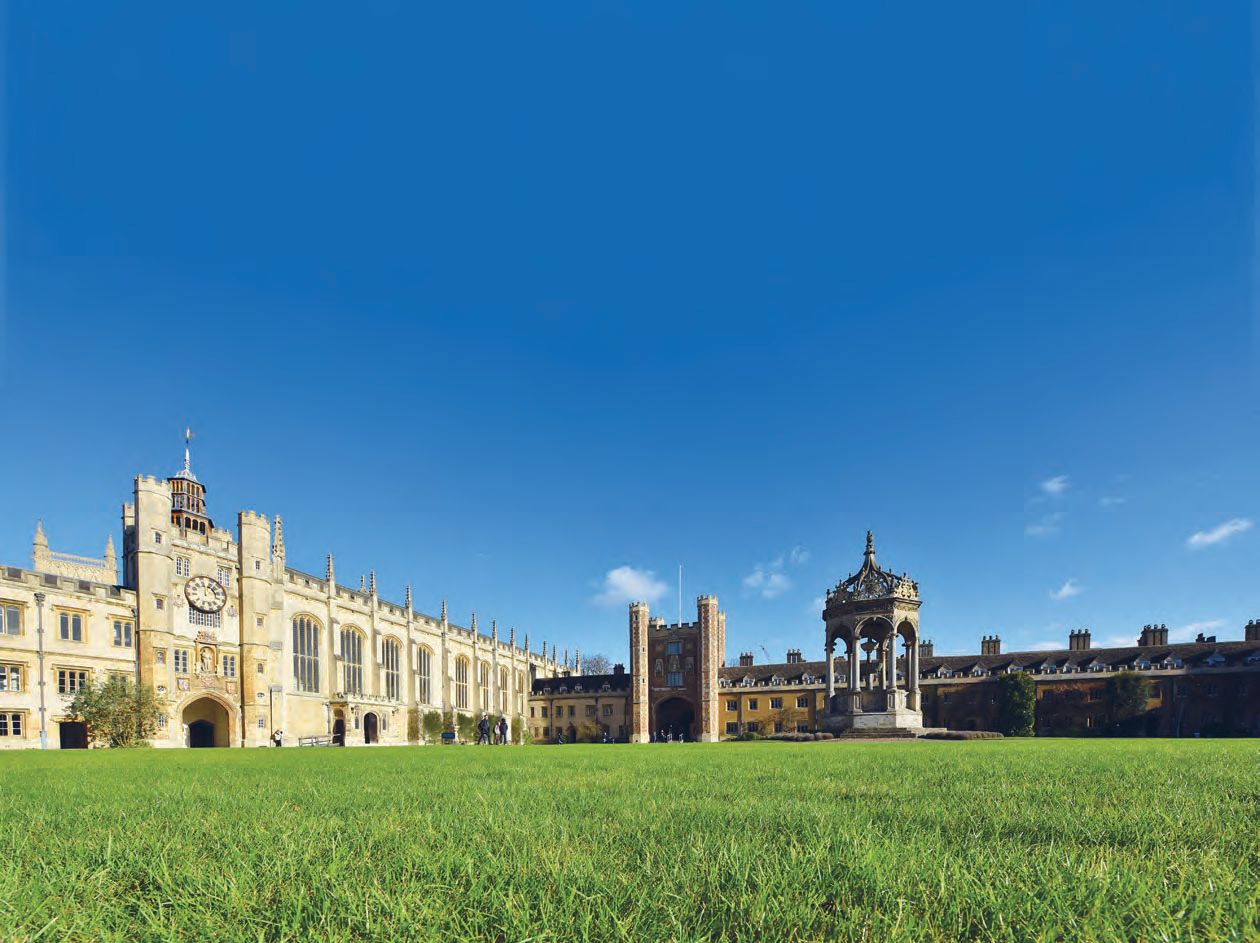College news

Mentoring Month 2025
In March, Mentoring Month returned for a third year, providing Trinity undergraduate students with the invaluable opportunity to develop the skills, abilities and connections they require for their futures.
Thanks to your incredible support, the scheme continues to expand, and we were able to match 104 students with volunteer alumni mentors, to benefit from their guidance and friendship. You can find out more here. We are grateful to everyone who contributed to Mentoring Month’s success.
Our mentors and student participants told us what they gained from the experience.
My confidence has increased when thinking about the future after my studies. Speaking to a real person who has walked this path before was very helpful, and hearing their experiences made their advice real.
If you care about a younger version of yourself, then it’s a wonderful experience. It hardly takes any actual time, but can have a massive longer-term impact, in good ways, for both you and your mentee.
Thanks for pairing me with my mentor and for going out of your way to make this connection happen. I really think these interactions will shape and improve my future plans.
Perfect – manageable in a busy diary, very focused– effective &
efficient. Loved it. Hope my mentee did too.
I highly recommend becoming involved because it's an easy and enjoyable way to give back to the College, which can be done entirely remotely!
Our Recent Graduate Mentoring Month, supported by the Trinity Business & City Association, will return in October, for its second year. The scheme is designed to connect Trinity alumni who have graduated within the last six years with professionals in their chosen career sector. Applications will open in September and if you would like to sign up as either a mentee or a mentor, please visit the website or keep an eye on the alumni e-newsletter.

Dialogue panel members taking questions from the audience. © David Johnson.
Dialogue panel members taking questions from the audience. © David Johnson.
Trinity Policy Dialogue
On 25 February 2025, the College hosted the first Trinity Policy Dialogue in the series, which has been made possible by a generous donation.
Chaired by the Master, Dame Sally Davies (e2019), proceedings opened with the inaugural lecture, from guest speaker The Rt Hon. Lord James O’Shaughnessy, Senior Partner at Newmarket Strategy and a leading authority on health innovation, policy and life science, entitled ‘The NHS is broken – how can life sciences fix it?’
An expert panel continued the discussion, sharing their insights and fielding questions from the audience during a Q&A session. Thank you to Dr John Arne Rottingen, CEO at Wellcome, Roland Sinker, Chief Executive at Cambridge University Hospitals NHS Foundation Trust, Professor Cathie Sudlow, Director, Chair of Neurology and Clinical Epidemiology at the University of Edinburgh, Charlotte Summers, Professor of Intensive Care Medicine at University of Cambridge, and Sarah Teichmann (1993), Professor of Stem Cell Medicine at the Cambridge Stem Cell Institute & Department of Medicine. To conclude the evening, guests enjoyed networking drinks in the Master’s Lodge, followed by dinner in Hall.
The Trinity Policy Dialogue will return next year.
If you wish to learn more, please contact us.
New Trinity PhD studentship in medicine
Cambridge donor and Canadian entrepreneur Dr Victor Phillip Dahdaleh has endowed a PhD studentship at Trinity College in medicine.

Dr Dahdaleh ©University of Cambridge
Dr Dahdaleh ©University of Cambridge
This endowment forms part of a £5 million donation to the Victor Phillip Dahdaleh Heart & Lung Research Institute at the University of Cambridge, bringing to £21 million his support for the Institute in the past two years.
The Institute is a collaboration between the University of Cambridge and Royal Papworth Hospital and aims to improve cardiovascular and lung health for everyone.
Professor Dame Sally Davies, Master of Trinity, said:
‘We are immensely grateful for Dr Dahdaleh’s vision in establishing this studentship. It will undoubtedly attract exceptional talent and contribute to the advancement of heart and lung research at Cambridge.’

Trinity Bradfield Prize
The winners Yizhu Yu, Lorna MacLean (left) and Xufu Ren (right) with Sir Gregory Winter.
The winners Yizhu Yu, Lorna MacLean (left) and Xufu Ren (right) with Sir Gregory Winter.
This year’s Trinity Bradfield Prize-winning innovations seek to help those affected by endometriosis; transform the care of people with Alzheimer’s; and cut carbon and costs by boosting the efficiency of power systems.
The winners, announced in a ceremony at the Bradfield Centre on the Cambridge Science Park in January, are Lorna MacLean, who won first prize for Demetria, which aims to revolutionise the diagnosis of endometriosis through AI-assisted ultrasound scans.
Xufu Ren of PowerMatrix won second prize for power systems technology that shrinks costs and boosts efficiency, cutting 100 million tonnes of CO2 annually.
Yizhu Yu took third prize for Healthspan Biotics, which is developing probiotics that could transform Alzheimer’s care.
The Trinity Bradfield Prize awards a total of £30,000 in cash alongside a comprehensive programme of entrepreneurship workshops, mentoring and free membership of the Bradfield Centre, a thriving workplace for start-ups and a hub for a host of entrepreneur-focused events. The former Master of Trinity and Nobel Laureate, Sir Gregory Winter (1970), chairs the judging panel of entrepreneurs and investors.
James Parton, Managing Director of the Bradfield Centre, said the competition was proving ever more popular,
Thanks to all of our partners and supporters that make the prize so special. This year’s applicants represented an amazing 34 departments and 24 colleges from the University of Cambridge.
Discover more about the Trinity Bradfield Prize.
Boat Race 2025
Cambridge celebrated a complete clean sweep at The Boat Race 2025 on 13 April, with victories in all four openweight races and also both lightweight races. Trinity is tremendously proud of the two accomplished athletes who contributed to the Light Blues’ triumph.
Congratulations to Isabella Fiske-Harrison (2022) who coxed the Lightweight Men’s Boat and to Polly Shorrock (2021), who rowed in Blondie, the Women’s Reserve Boat, on their impressive performances.
In an interview on the website, Polly shares how she balances rowing with an MPhil in Classics and what being part of Cambridge University Boat Club has taught her.
Trinity Arts Week
The College’s first Arts Week, a collaboration between various arts societies, was held in February, offering talks, workshops and performances, poetry, jazz, drama, photography, fine arts and more. Every event was open to all Cambridge students.
Third-year students Sophie Rayner (2022) and Alexander Velody (2022) jointly devised Arts Week, galvanised both by their enthusiasm for the arts at Trinity and the frown of some Cambridge academics at student involvement in theatre rather than, for example, rowing. Sophie and Alexander’s aim was to showcase the wealth of talent of current students and Trinity alumni in the arts, by incorporating events in theatre, film, photography, literature, music and fine art.
Poster for Tom Murray's 'play 'Forgotten In the Land of Egypt’, set in the fens, where a woman is haunted by prophetic dreams.
Poster for Tom Murray's 'play 'Forgotten In the Land of Egypt’, set in the fens, where a woman is haunted by prophetic dreams.
Some of the highlights of the week included a Creative Careers Dinner, for which alumni in publishing, film, theatre, architecture, curation (to name a few) returned to Trinity to share their experience and advice with students. The Dryden Society welcomed professional theatre company, The Mango Ensemble, and last year’s Shaffer playwright in residence, Tom Murray, to host a workshop and perform their play Forgotten in the Land of Egypt, in the Chapel. During an evening of poetry, James Harpur (1976), Rebecca Watts (2001), and Mona Arshi, Fellow Commoner in the Creative Arts (e2024), shared poems from their new collections. The keynote event saw Director of the Almeida Theatre, Rupert Goold (1991), in conversation with co-organiser and student director Alexander Velody.
Thank you to alumni who generously gave their time to return to College to talk with students as part of the programme and helped to make the inaugural week such a success; we hope Arts Week will return again next year.
Meet Sophie Rayner and discover more about the first Trinity Arts week.

STEM SMART: Levelling the playing field
Trinity’s Admissions Director Dr Glen Rangwala (1993) has welcomed new research showing that Cambridge’s STEM SMART programme has enabled more than 700 state school students to achieve better A-level results and secure places
at leading universities.
To date, 6,500 students have taken part in the free 16-month programme, which includes online tutorials with Cambridge academics, the opportunity to stay at a Cambridge College and attend academic sessions in departments, as well as mentoring from current students.
Sixth form students from around the UK on the STEM SMART programme at Cambridge. ©University of Cambridge.
Sixth form students from around the UK on the STEM SMART programme at Cambridge. ©University of Cambridge.
UCAS, the UK’s university admissions service, has analysed the first two years of STEM SMART data and found that ‘STEM Smarties’ – as participants call themselves – were more aspirational, received higher grades, and were more successful at securing places at top universities.
Sixth formers from the most deprived backgrounds in the UK saw the biggest average grade boost in their A-levels across Maths, Further Maths, Physics, Chemistry, and Biology, with Physics students on average achieving a grade higher.
Cambridge launched the programme in 2022, with the online platform Isaac Physics, to help bridge attainment gaps in maths and science A-level subjects, and mitigate educational disruption caused by the COVID pandemic. Co-founder and Director of Isaac Physics, Professor Lisa Jardine-Wright OBE (1994) said:
We are helping to bridge that gap through free, weekly tutoring that would otherwise be unaffordable for A-level students from these backgrounds. STEM SMART has the capacity to support every STEM sixth former in every state school for free.
This is about levelling the playing field and enabling students from educationally disadvantaged and under-represented backgrounds to access Cambridge and other competitive universities. We’re providing top quality support through subject specific tuition and resources, mentoring and encouragement, and getting students from a B to an A, and from an A to an A*.”
To date, Trinity has hosted more than 100 students on the STEM SMART programme. Dr Rangwala said:
Trinity hosts one of the largest intakes for the summer residential and a significant number of students go on to receive offers from Cambridge. I am delighted the STEM SMART programme has enabled many students to engage with Cambridge academics in weekly tutorials and then feel able and inspired to apply to leading UK universities including Cambridge.
The UCAS research compared the outcomes of more than 1,000 sixth formers who joined STEM SMART in its first two years with those of around 9,000 demographically matched students who did not.
The analysis shows that students most engaged in the programme – more than 360 – saw their results jump by a grade on average across Maths, Further Maths, Physics, Chemistry, and Biology.
They were more than twice as successful in achieving an A* in Maths, around four times as successful in achieving an A* in Physics, and around twice as successful in securing a place at Cambridge or Oxford than students from similar backgrounds who did not join the programme. A total of 80 students from the first two STEM SMART cohorts secured a place at Cambridge or Oxford.
STEM SMART and Isaac Physics are free to students, following support and funding from the University, the Colleges, alumni, The Ogden Trust, Raspberry Pi and previously the Department for Education.
Discover more about STEM SMART.







